Idaho’s summers are undeniably beautiful, with clear skies, rolling landscapes, and pleasant temperatures. However, this beauty often coincides with a significant drawback for homeowners—higher energy bills.
When the temperature rises, so does the strain on your HVAC system and the accompanying spike in energy consumption. But don’t sweat it! With a few smart adjustments, you can maintain a comfortable home while keeping your costs down.
This guide will cover what drives those energy bills up in the summer and provide actionable tips to keep them in check without compromising your comfort.
Why Do Energy Bills Rise in the Summer?
During Idaho’s summer months, three main factors typically cause energy bills to escalate:
1. Greater Usage of Cooling Systems
When temperatures soar, air conditioners and HVAC systems work overtime to maintain a comfortable indoor environment. This increased reliance on cooling appliances directly results in higher energy consumption.
2. Air Leaks and Insulation Issues
Warm outdoor air infiltrating your home through poorly sealed windows or doors forces your AC system to work harder to maintain a consistent temperature. Similarly, insufficient attic and wall insulation allows cool air to escape, significantly reducing your system’s efficiency.
3. Energy-Inefficient Appliances
Older HVAC systems, outdated thermostats, or less efficient household appliances typically consume more power, leading to higher operating costs, especially during peak summer usage.
Smart Strategies to Lower Your Energy Bills
By focusing on how you cool and maintain your home, you can significantly reduce your energy consumption while staying comfortable. Here are tried-and-true methods to beat the heat without breaking the bank:
Perform Regular HVAC Maintenance
One of the easiest ways to keep your energy bills down is by ensuring that your HVAC system runs efficiently. Schedule routine maintenance to catch and resolve potential issues before they lead to larger problems. Here’s what professional maintenance typically includes:
- Cleaning coils and vents for improved airflow.
- Replacing dirty filters to ensure the system isn’t overworking.
- Checking refrigerant levels to ensure optimal cooling performance.
An efficient HVAC system isn’t just better for your wallet; it’s also better for the longevity of your system.
Install and Use a Programmable Thermostat
A programmable thermostat can be tuned to cool your home when needed while reducing energy usage during off-peak hours (like when you’re asleep or away). Consider setting your thermostat to a higher temperature (around 78°F or above) when you are not home to minimize energy use.
Smart thermostats take the guesswork out with automation features, learning your preferences to optimize cooling while minimizing wasted energy.
Seal Air Leaks and Improve Insulation
Air leaks are silent energy vampires, forcing your air conditioner to work harder. Conduct a walk-through of your home and seal any noticeable gaps around:
- Windows
- Doors
- Attic hatches
- Air ducts
Consider upgrading your insulation, especially if your attic and walls are under-insulated. Quality insulation prevents cool air from escaping, keeping your home comfortable and energy-efficient all summer long.
Optimize Window Shades and Curtains
Did you know that up to 30% of unwanted heat comes through your windows? Combat this by:
- Closing blinds or curtains during the hottest part of the day to block out sunlight.
- Investing in blackout curtains or reflective window treatments to minimize heat gain.
- Opening windows and curtains during the cooler parts of the day to allow natural ventilation.
This simple trick supports your air conditioner by reducing the amount of work it needs to do.
Upgrade to Energy-Efficient Systems
Sometimes, the most cost-effective move in the long run is upgrading equipment. Modern air conditioners and heat pumps are designed to consume less power while providing improved cooling performance. Replacing an outdated HVAC system can result in significant energy savings over time.
By considering models with higher SEER (Seasonal Energy Efficiency Ratio) ratings, you can ensure your system meets energy-efficient standards and saves you money on utilities.
Use Fans for Precise Cooling
Ceiling and portable fans can be a game-changer for lowering energy consumption. By using fans in tandem with your AC:
- You can set your thermostat a few degrees higher without compromising comfort since fans help circulate cool air.
- Fans use far less electricity than an HVAC system, making them an ideal supplementary cooling option.
Change Your Air Filters Regularly
Dirty air filters restrict airflow, making your HVAC system work harder and consume more energy. A good rule of thumb is to replace air filters every 1-3 months, depending on your system and usage. Clean filters enhance both indoor air quality and energy efficiency.
Reduce Heat from Appliances
Large appliances can add extra heat to your home and force your air conditioner to work harder. Minimize appliance-related heat by:
- Running dishwashers and washing machines during early mornings or evenings.
- Drying clothes outside during warm days to avoid using energy-intensive dryers.
- Choosing LED light bulbs, which emit significantly less heat than traditional incandescent bulbs.
Keep Cool and Save with Professional Support
Small, actionable changes can have a significant impact on your summer energy bills. By making adjustments in how you cool your home, investing in energy-efficient upgrades, and staying proactive with maintenance, you’ll improve the comfort of your living space while protecting your wallet.
If you’re ready to make your home more energy-efficient, Magic Electric, Plumbing, Heating + Air is here to help. From professional HVAC maintenance to system upgrades, we deliver tailored solutions that keep you cool and costs low. Reach out to schedule your service appointment and beat the summer heat the smart way.


